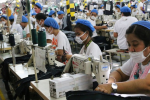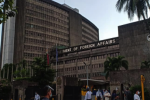PH strict travel woes causing the country to lose global seafarer market share

FILE PHOTO
The Joint Maritime Committee JMC and German-Philippine Chamber of Commerce and Industry on Wednesday warned the government address bottlenecks preventing Filipino seafarers from going back to ships as firms shift to other nationalities with workers who are easier to bring onboard.
Tore Henriksen, chairman of JMC said Filipino seafarers are much harder to bring on board during the pandemic due to restriction such as high cost of airfares to and from the Philippines.
“What we hear from our members is that they have more and more ship owners that tell them that unfortunately they feel forced to change from Philippine crew to other nationalities for practical reasons,” Henriksen
“Not because there’s anything wrong with the performance of Philippine seafarers, not to a fault of their own, but due to the situation in their own country. The authorities should address this issue to avoid development where we’re losing market share,” he added.
As of this time, 1 percent of the global seafarers or about 16,000 people, are stuck on ships with extended contracts due to the difficulty in getting replacement workers, he said.
“This has a lot of effects on the mental health of the seafarers obviously that in turn lead to safety concerns. People who are fatigued, people struggling with mental health [who are] in charge of complicated machinery, and maybe more than anything, it’s a question of common decency,” Henriksen said.
The maritime industry is among those negatively affected by the COVID-19 pandemic as borders and ports tightened measures to curb the virus spread.
Filipinos are “very well regarded” in the global shipping industry and contributed $6.5 billion to the Philippine economy in 2019, Henriksen said.
Sea-based workers are among the top remittance contributors in the country.
A 2019 New York Times report said there are 400,000 Filipino seafarers out of the global total of 1.6 million.






